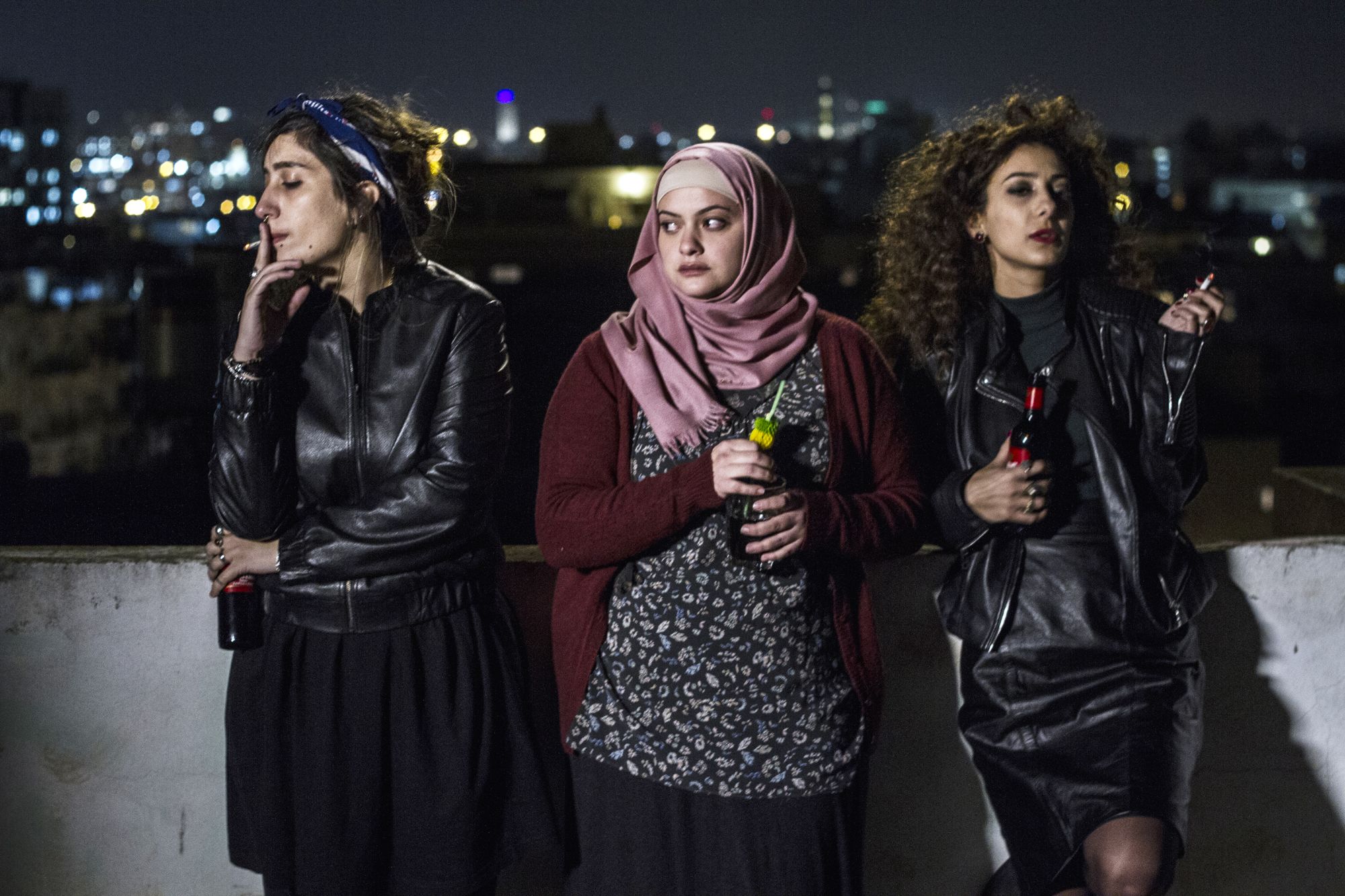Editor’s Note: In Between is released in the US on January 5th. This article was initially published in November 2017 when it was in UK cinemas.
Palestinian director Maysaloun Hamoud’s debut film has polarized opinion. “In Between,” or “Bar Bahar,” to give its Arabic title, has been showered with plaudits internationally and scooped awards at film festivals in Canada, Spain and Israel.
Yet among some members of the Palestinian community, it has faced calls to be boycotted. Hamoud even says she has received death threats on social media.
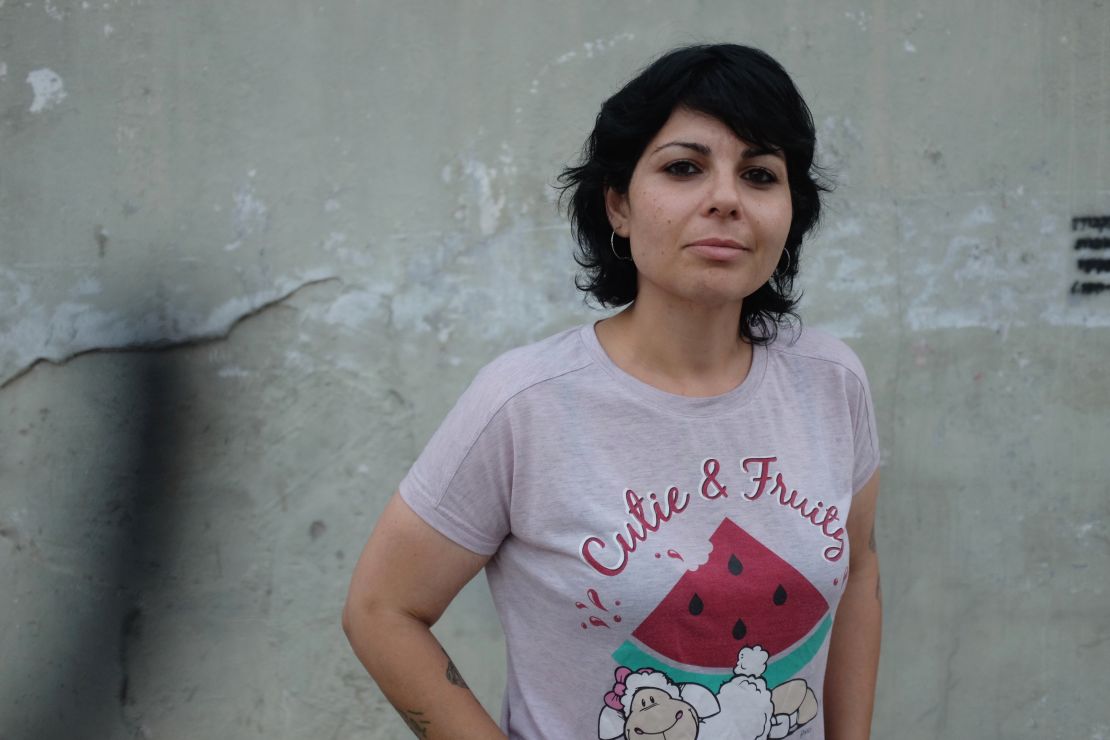
The film, which was released earlier this year and is currently showing at cinemas in the UK, details the lives of three very different young Palestinian woman who live together in a Tel Aviv apartment.
Laila (Mouna Hawa) is a liberally minded lawyer. Salma (Sana Jammelieh) dreams of being a DJ and struggles to tell her Christian family she is gay. Nour (Shaden Kanboura) is from a conservative Muslim background and due to marry a controlling fiance.
With Laila and Salma ensconced within the Palestinian party scene, “In Between” depicts alcohol consumption, drug taking, casual sex and homosexuality – topics Hamoud admits are seldom touched on in Arabic-language films.
It also addresses sexual violence, the difficulties often faced by young Palestinians living in Israel and the battle between tradition and modernity, between young and old.
The town of Umm-Al-Fahm, which has an overwhelmingly Arab-Israeli population and where the character Nour describes being from, took offense to how it felt it was characterized in the film.
A statement from the town’s leaders carried by the AFP News agency earlier this year described “In Between” as “without the slightest element of truth” and encouraged citizens to boycott it.
CNN spoke with Tel Aviv-based Hamoud about her film (which she hopes is the first of a trilogy), the reaction to it and why she confronted such sensitive subject matters.
CNN: What did you hope to achieve with the film?
Maysaloun Hamoud: The most important thing for me is to start to talk about all the taboos that we can’t really deal with … (to address) all the topics that are a hot potato for our society.
CNN: By your society, do you mean Palestinian society?
Hamoud: Yes, of course, the Palestinian society. But if we see it in a larger picture, it’s the Arab society as well. More than this, we can say that these issues are universal topics (which people around the world recognize) as well.
CNN: What has the response been from other societies in the Middle East?
Hamoud: For the Arab societies, basically it is a big shock. It’s shaking the system. Of course, when you criticize something there is a reaction because nobody wants to see himself or herself as an ugly face in the mirror. The movie is a mirror for us.
CNN: The film depicts drug taking, homosexuality, casual sex, alcohol consumption, rape, the control of men over women, why did you want to address these issues?
Hamoud: Because cinema is a very powerful art form. I think we have a responsibility … as artists we have a responsibility among our society … to symbolize the reality.
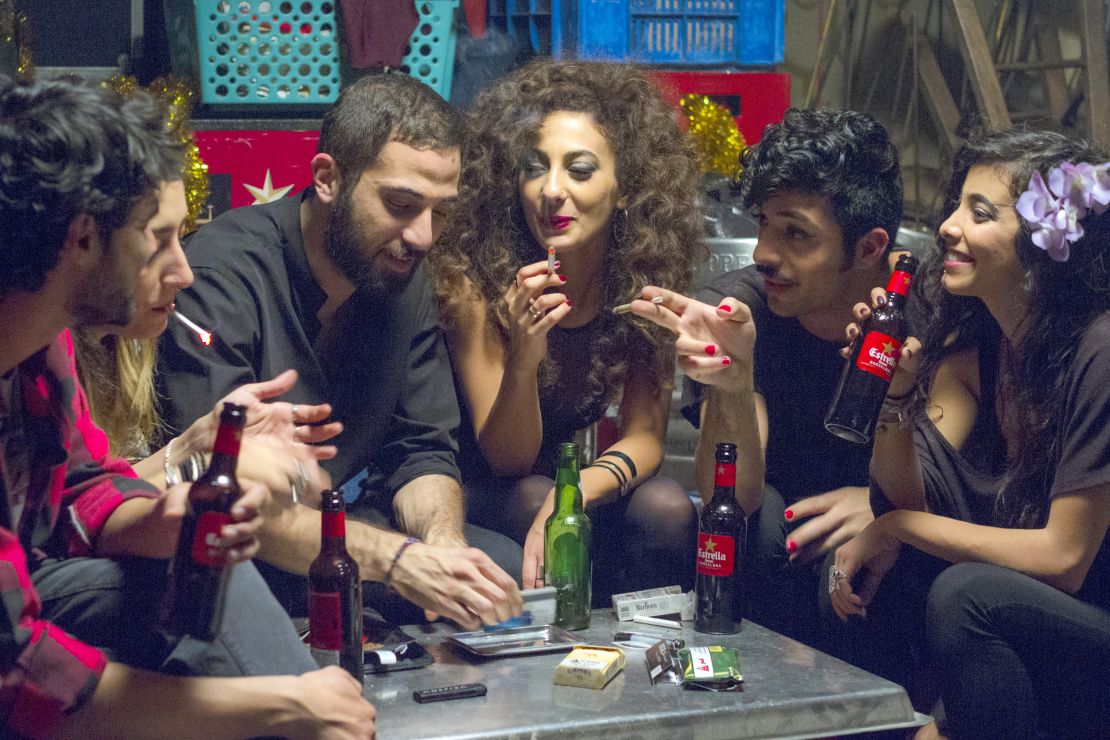
CNN: Are some people surprised to see young Palestinians portrayed the way they are – for example, taking drugs?
Hamoud: Yes, it was a shock. It was a (topic of conversation) inside the Palestinian societies that “no, it’s not happening, it’s not our children … they are not like those you have in the movie.” That’s a denying state of mind because we don’t want to admit it. It’s a normal process when you have shock.
CNN: Were you aware of just how sensitive some of the issues were?
Hamoud: I knew that I had a bomb inside my hands, but I didn’t know how big it was going to be. I knew that in some ways (fundamentalists) would find points to be against it … but I really didn’t know what it would be exactly.
CNN: Can you tell me about the threats you received?
Hamoud: There were threats to me, to the actresses, also to my family.
For me, one of the things that I can’t really forget is that they sent me a message that said “I have a question for you: Do you want the bullet in your head, in your heart or between your legs?”
(There were) a lot of Facebook messages, thousands. At the same time (there was) also a huge amount of loyalty for the movie. People started to write and to talk about the movie as if the movie represented them and that they had to fight against the people who are against it.
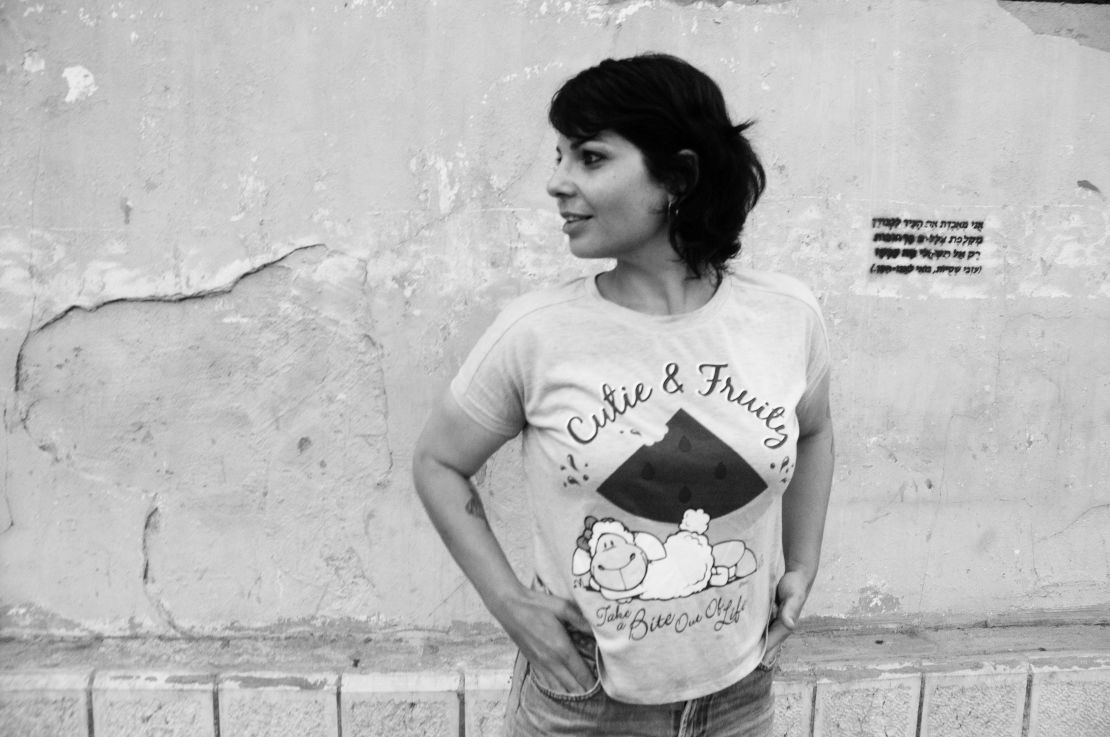
CNN: Is there a vibrant Palestinian arts scene or underground scene?
Hamoud: Yeah, this underground scene that I am part of it’s just getting bigger and bigger.
It’s the same in other Arab (countries and cities), in Beirut … in Cairo, in Amman, in all those places … we have the same subculture scene, we have the same conflict, the same dilemmas. The differences are in the background. Each scene has its own conditions. But basically we are totally the same. We wear the same fashions, we listen to the same music, we read the same things.
It’s all over the Arab world. Also, we can say that my movie is part of a new cinematic Arab wave which started after the Arab Spring.
You can see each year more and more movies from the Arab world that talk about the taboos … with very similar elements. Because of that we can call it a wave, talking about the taboos without fear, with a lot of courage and the feminine voice has started to be in the front more and more.
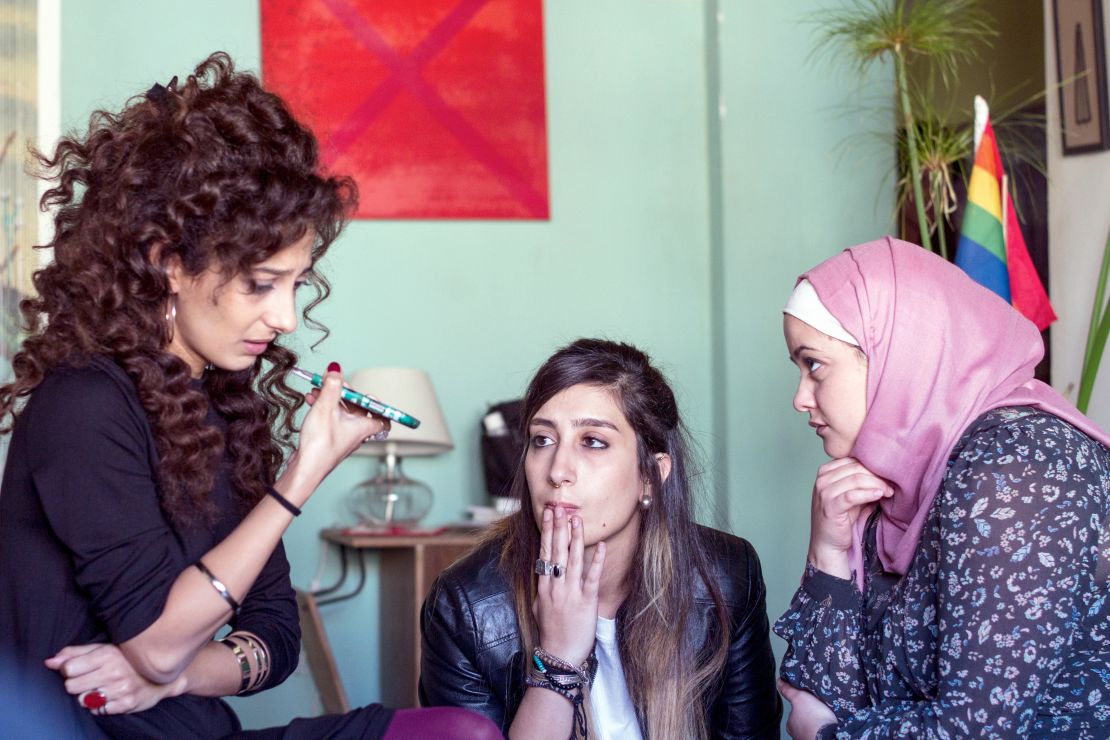
CNN: Even though the film is about three Palestinian women have you found that it strikes a chord with people around the world?
Hamoud: Of course, it doesn’t matter where the movie is screening. The response is the same. It’s amazing. It’s a particular story but it is universal.
In Latin America, the Far East, everywhere women have these stories.
The above is a shortened version of CNN’s conversation with Hamoud.
